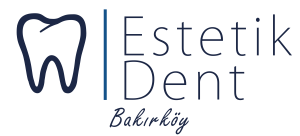Toothache Causes and Treatments
Category : Dental Treatments
Toothache Causes and Treatments
It is the news of the pain that starts with cold drink and food.
DENTAL PAIN
Tooth decay is caused by the erosion of the tooth enamel, inflammation of the gums or similar reasons. Toothache is a condition that almost everyone complains in one or more periods of their lives. The general opinion is that toothaches are simple pains, and for this reason, going to the dentist is often delayed until it becomes unbearable. In addition, due to the same blood, it is one of the most common types of pain in which unconscious use of painkillers and various methods are seen.
Causes of toothache:
Erosion of tooth enamel
Gum disease
Dental caries and dental abscesses
Embedded Teeth (wisdom teeth)
It can be listed as extraoral diseases such as sinusitis. Tooth decays are the most common causes of dental pain. Most of the society has dental caries. This is mainly due to poor or poor oral hygiene. Bacteria that settle in the mouth form acid with sugary and floury food residues, which weakens the protective layer of the tooth and causes caries.
Toothaches are often felt as throbbing and extremely uncomfortable. The pain becomes more severe and sometimes unbearable. Especially if there is an inflammatory condition such as abscess, it may cause swelling that is noticeable from the outside. Hot-cold sensitivity and sensitivity increase when pressed to the tooth. Minor breaks can be seen in the teeth. When toothache starts, it is useful to go to a dentist without wasting time. Because, as can be understood from the causes of toothache, the pain does not pass by itself and requires treatment. Dental Pain Treatment (practical solutions to toothache):
Absolutely, ASPIRIN or any pain medication should not be applied on the aching tooth. Due to their chemical nature, such drugs can cause irritation in the gums and surrounding soft tissues. This will cause an extra pain besides toothache.
Food residues on the aching tooth and between the teeth should be cleaned using a toothbrush and dental floss and mixed by adding half a teaspoon of salt to half a glass of water and rinsing the mouth thoroughly with this salt water.
Before going to the dentist, a pain medication can be taken.
If there is swelling on the face due to inflammation, a cold compress should be applied to that area.
If there is a cavity on the tooth due to caries, cotton soaked with very little clove oil can be placed here. Eugenol will provide pain relief. However, eugenol should be prevented from leaking into the gum while doing this procedure. Because clove oil also destroys soft tissues.
A dentist should be consulted as soon as possible.
